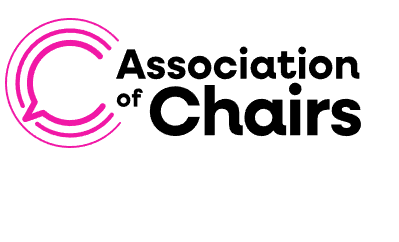The proportion of charities using Artificial Intelligence (AI) tools in their operations has increased from 57% to 77% over the last year, research has found.
A report by Blackbaud into fundraising trend found that more charities have “resources to explore AI usage”.
While the proportion of charities with an AI policy in place has also improved Blackbaud warns that for many charities “AI policy development is still in its early stages”.
Those with an AI policy has increased from 6% to 16% and those with one in development has almost doubled from 17% to 32% over the last year.
But just over half of all charities are still without a policy in place or in development. This proportion rises to 70% among small charities, Blackbaud found.
One representative of an animal charity acknowledged that an AI policy “could be very helpful” but added that due to the “huge” ethical implications involved “we need to take the time to work through a thorough policy before implementing across the organisation.”
Natural language processing (NLP) is among the most common uses of AI among charities. This includes text and speech recognition and is used in tools such as chatbots and search engine results.
Another is predictive AI, that uses data to predict patterns, such as donor behaviour and forecasting demand.
Generative AI is also used that uses the technology to create content, including videos, text and images.
Four in five charity users of AI are accessing free tools, less than one in five use AI in their donor database or CRM system. Meanwhile, only 3% have developed their own in-house AI tools.
An increasing number of charity representatives want to see more training around the use of AI. While last year jut over two in five said technology training was the biggest value to their organisation, this had increased to over half this year.
One charity representative told researchers: “I think we need to adopt and use AI, and I am keen to use it but so far have not had any training or guidance on what we should be doing with AI in our organisation.”
Blackbaud’s report concludes “there is immense potential in digital transformation”.
“Those who leverage technology effectively are not only meeting evolving donor and prospect expectations but are also paving the way for future advancements in giving,” it adds.
“The increasing importance of AI, despite prevalent concerns and the need for clearer policies and communication, signals a transformative shift that organisations must now embrace to thrive.
“To navigate these changes and capitalise on emerging opportunities, a strategic approach to digital integration and AI utilisation is imperative.”
Latest News
-
Civil Society Covenant blighted by delays and U-turns, report warns
-
More than 30 jobs at risk as hospice charity looks to close home care service
-
Cranfield Trust: A guide for charity leaders on navigating local authority devolution
-
Friday funding roundup - 20 February
-
Former youth charity chief to lead corporate social responsibility organisation
-
Christian charity’s failed bid to buy a new church breached fundraising code
Charity Times video Q&A: In conversation with Hilda Hayo, CEO of Dementia UK
Charity Times editor, Lauren Weymouth, is joined by Dementia UK CEO, Hilda Hayo to discuss why the charity receives such high workplace satisfaction results, what a positive working culture looks like and the importance of lived experience among staff. The pair talk about challenges facing the charity, the impact felt by the pandemic and how it's striving to overcome obstacles and continue to be a highly impactful organisation for anybody affected by dementia.
Charity Times Awards 2023
Mitigating risk and reducing claims

The cost-of-living crisis is impacting charities in a number of ways, including the risks they take. Endsleigh Insurance’s* senior risk management consultant Scott Crichton joins Charity Times to discuss the ramifications of prioritising certain types of risk over others, the financial implications risk can have if not managed properly, and tips for charities to help manage those risks.
* Coming soon… Howden, the new name for Endsleigh.
* Coming soon… Howden, the new name for Endsleigh.
Better Society

© 2021 Perspective Publishing Privacy & Cookies














Recent Stories